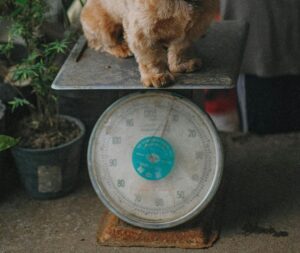French Bulldogs are small in size but huge in personality. With their bat-like ears, playful nature, and love for cuddles, they quickly steal our hearts. But behind those snorts and wiggles lies a breed that requires special care to stay healthy and happy. Whether you’re raising a brand-new pup or caring for an adult Frenchie, this guide will walk you through every stage—from teething to tail wags.
1. Puppyhood Essentials (0–6 Months)

The first few months are crucial in shaping your Frenchie’s health and habits for life. Here’s what to focus on:
Vet Visits & Vaccinations
- Schedule your first vet visit ASAP.
- Stay on top of the core vaccinations: distemper, parvovirus, hepatitis, and rabies.
- Begin monthly flea, tick, and heartworm prevention.
Quality Nutrition
- Feed your pup a high-quality, small-breed puppy food.
- Avoid overfeeding—Frenchies gain weight easily, which can worsen breathing issues.
- Stick to feeding schedules and portion sizes recommended by your vet.
Socialization & Training
- Expose your puppy to new people, pets, and environments during the socialization window (8–16 weeks).
- Begin gentle training using positive reinforcement.
- Teach basic commands like “sit,” “stay,” and “leave it.”
Safe Home Setup
- Puppy-proof your home by removing hazards like electrical cords, small objects, and toxic plants.
- Use a crate for sleeping and training—it provides a safe space and supports toilet training.
Watch for Red Flags
- Monitor early signs of BOAS (noisy breathing, snorting, or frequent gagging).
- Look out for food allergies or skin irritation—Frenchie pups are prone to both.
2. Growing Up Strong (6 Months – 2 Years)
As your Frenchie matures, consistency is key. This phase is all about building routines and preventing future health problems.
Spaying/Neutering
- Talk to your vet about the best time for this—typically around 6–12 months.
- It can help with behavioral issues and reduce some health risks.
Exercise: Less Is More
- Daily walks and gentle play are great—but avoid high-impact or high-heat activities.
- Never push your Frenchie to exercise if they’re panting heavily or slowing down.
Dental Care
- Start brushing their teeth regularly—dental disease is common in the breed.
- Provide dental chews and schedule cleanings if needed.
Weight Monitoring
- Excess weight strains their airways and joints.
- Stick to a feeding routine and avoid giving too many treats or table scraps.

Mental Stimulation
- Puzzle toys, short training sessions, and indoor games prevent boredom.
- Frenchies love attention—make sure they get plenty!
3. Adult Frenchie Care (2+ Years)
Your dog is now fully grown, but that doesn’t mean the hard part is over. Adult Frenchies need steady care to stay fit and avoid common health problems.
Regular Checkups
- Schedule annual vet visits for overall exams, blood work, and dental checks.
- Catching issues early makes a big difference.
Breathing Management
- Know your dog’s limits. Avoid strenuous activity, especially in warm or humid weather.
- If BOAS symptoms are severe, discuss surgical options with your vet.

Seasonal Care
- In summer, always provide shade and water. Walk early morning or evening.
- In winter, protect them from the cold with jackets or booties if needed.
Joint and Spine Support
- Frenchies are prone to hip dysplasia and back issues.
- Avoid letting them jump off furniture or climb stairs excessively.
4. Nutrition and Feeding Tips
A good diet is the foundation of health.
What to Feed
- Choose a high-quality adult dog food tailored to small or brachycephalic breeds.
- Look for foods rich in omega-3s, antioxidants, and joint support nutrients.
What to Avoid
- Common allergens: chicken, beef, dairy, wheat.
- Foods like chocolate, grapes, onions, and artificial sweeteners (xylitol) are toxic.
How Much to Feed
- Monitor body condition—Frenchies should have a visible waist and ribs you can feel.
- If in doubt, ask your vet to recommend a feeding amount based on weight and activity level.
5.Grooming & Skin Health
Their short coat is easy to manage, but Frenchies still need regular grooming.
Wrinkle Care
- Clean skin folds with a damp cloth or vet-approved wipes 2–3 times per week to prevent infections.
Paw & Nail Maintenance
- Keep nails trimmed.
- Moisturize paw pads in cold or dry weather.
Ear & Eye Checks
- Check for redness, discharge, or odor.
- Clean gently if needed—never insert anything deep into the ear.

6.Emotional Wellness & Bonding
Frenchies may be tough little clowns, but they’re emotionally sensitive.
Daily Attention
- They thrive on human interaction—loneliness can cause behavioral issues.
Routine Is Comforting
- Regular feeding, walks, and bedtime help reduce anxiety.
Separation Anxiety Prevention
- Practice short departures early on.
- Provide interactive toys when you’re away.
Final Thoughts
Keeping your French Bulldog healthy takes more than vet visits and premium dog food. It’s about building habits, watching closely, and loving them with awareness. From playful puppy zoomies to snuggly adult naps, your Frenchie deserves a life full of comfort, care, and joy.
Their health is in your hands—and trust us, those snorts, wags, and soulful eyes? They’re worth every effort.






